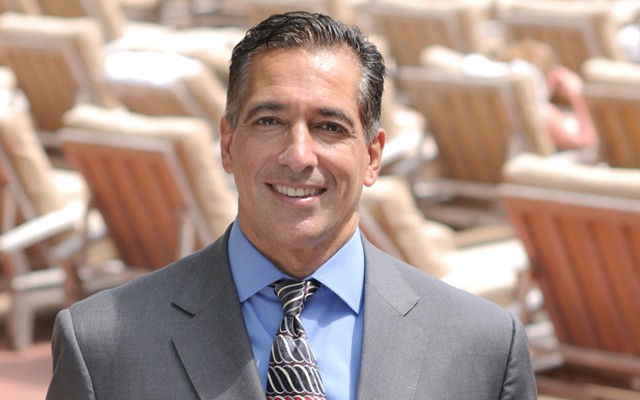As much as we might strive to forgive others, it can be strangely difficult to forgive ourselves. Often without realizing it, many of us carry regret — or even self-loathing — for years after we commit a transgression.
Learning to forgive ourselves can be a complicated journey, beset by painful self-reflection and difficult truths. Several factors make the process difficult, yet it’s worth going through because the benefits of absolution abound.
Letting Go Lightens the Load
A 2010 Iowa State University study linked self-forgiveness to all-around better mental health. Participants who had made amends were less likely to experience symptoms of depression or anxiety, and more likely to report healthy self-esteem, than those who remained mired in an inward grudge. (See, “How to Make Amends” for strategies to gracefully say you’re sorry.)
Recent research draws similar conclusions. Compared with those who view their past mistakes through a lens of compassion, individuals stuck in a self-punitive mindset report a bleaker view of themselves and of the future.
But scientists added a critical caveat: Not all forms of self-forgiveness are equal.
We sometimes conflate forgiving ourselves with shifting the blame — attributing our mistakes to others in order to avoid taking responsibility. This “pseudo self-forgiveness” doesn’t generate the same self-growth; rather, it can erode our ability to empathize with those we’ve wronged.
“Self-forgiveness is about more than letting oneself off the hook or refusing to feel bad about oneself,” the researchers concluded. “[It’s] a matter of integrating past wrongdoing into a complex view of the self.”
And that’s where things can get tough.
Guilt vs. Shame
The reason so many of us stay trapped in a self-punitive mindset or default to blaming others may boil down to one thing: shame. Understanding what shame is and how it functions is essential to letting it go.
Shame is often mistaken for guilt, but there’s an important difference. Guilt comes from having done something “bad”; shame is about believing you are bad. Guilt essentially functions as a verb: It tells us we did something wrong. Shame acts more like an adjective, whispering “You’re just a bad person.”
Guilt can be empowering. We recognize we made a mistake — that we have the power to act differently next time. Shame tends to keep us stuck. If you see yourself as fundamentally bad (or cruel, or stupid), change can seem impossible.
Yet shame isn’t entirely a bad thing. Psychotherapist William Lent, LCSW, views it as fundamental to human existence. “A certain degree was essential to our survival. Our ancestors had to be shamed from doing something that might get the tribe killed. And, from a developmental perspective, shame can help children learn limits and boundaries.” For example, a child who hits others to get what he wants may change only if he learns to feel bad about himself after acting out.
But when shame festers, it can turn toxic. “We cover it up, believing that if we reveal the source of our shame we may be judged, or hurt, or abandoned,” Lent explains.
Shame can feed a sense of self-loathing, and we’ll perform all sorts of mental gymnastics to avoid facing it head on. Psychoanalysts describe these unconscious tricks of the mind as defense mechanisms.
Minimizing, blaming, denying, and other defense mechanisms can serve a useful function. They protect our (often fragile) egos, allowing us to save face or simply get through the day without breaking down in tears.
But they also prevent us from facing our ugly truths, let alone working to change them. And shame is like quicksand: The more we fight it, the deeper we sink — and the more elusive self-forgiveness becomes.
(Learn more and go deeper at, “4 Steps to Let Go of Guilt and Shame.”)
A Path to Self-Forgiveness
Sigmund Freud considered denial our most primitive defense mechanism. Overcoming it is the first step toward achieving self-forgiveness, and it starts by taking responsibility for what we have done.
Lent recalls a client whose wife discovered he was having an affair. Hoping to salvage the relationship, the client and his wife began couples counseling. “The fact that he talked about it out loud was important; releasing the secret relieved some of the shame.”
But Lent’s client also committed to individual therapy as a way to better understand why he’d been unfaithful. This represented an important next step toward self-forgiveness. Exploring the why behind the what helps foster self-compassion while also enabling us to reframe our poor choices as exactly that — choices, not inevitable consequences.
Still, introspection can be a painful process. Lent’s client “veered backwards” many times throughout the course of his therapy, returning temporarily to that place of self-loathing and shame. It’s a fundamental truth of self-forgiveness that you often have to feel worse before you feel better.
Depending on the nature of an offense, making amends may also be a necessary part of the process. This entails not only apologizing but accepting the consequences of your actions, which may include the loss of trust or even the relationship itself. Interestingly, Lent notes, many of his clients find accepting the victim’s forgiveness harder than accepting that a relationship is over.
No matter how many times his wife and kids said “I forgive you,” Lent’s client struggled to believe it was really true. Lent contends that his resistance served a function. “Sometimes people hold onto a self-punitive mindset because they think it will help them avoid engaging in the problematic behavior again.”
This strategy may work. But it might also perpetuate feelings of negative self-worth as well as that self-fulfilling shame-based mindset: I’m just a bad person; naturally I make bad choices.
Which brings us to the final step of self-forgiveness: change. This is less a stage than an ongoing commitment, and it often requires looping back to earlier parts of the process, especially self-reflection.
Just as important, change requires grace as well as grit on those occasions when we fall short. Like any relationship, the one we have with ourselves needs compassion, understanding, and patience to thrive. When we commit to the work of self-forgiveness, we learn to see ourselves as imperfect yet resilient. We accept that we will not only make mistakes but that we have the capacity to learn and grow from them.





This Post Has 0 Comments